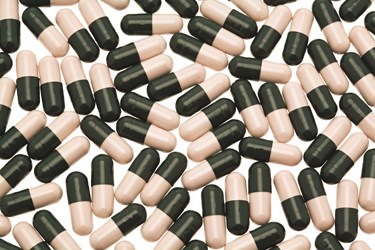FDA News Roundup: Kythera Bio, Boehringer Ingelheim, GW Pharma, And More
By Anna Rose Welch, Editorial & Community Director, Advancing RNA

Orphan Drug Designations:
SolaranRX’s SRX-1177 was named an orphan drug for stages 2b to 4 malignant melanoma. The treatment, which comprises a radiolabeled peptide, is injected, targeting and killing the cancer cells by attaching to the melanocortin-1 (MC1) receptors often overexpressed in melanoma.
Capricor Therapeutics candidate, CAP-1002, earned orphan designation for Duchennes muscular dystrophy-associated cardiomyopathy. CAP-1002, or cardiosphere-derived cells (CDCs) have been examined in preclinical studies, in which they halted oxidative stress, fibrosis, and inflammation. Mice treated with the cell therapeutic product saw increased mitochondrial function and collagen/fibrosis- content reduction. The company is also developing the therapy to treat heart attack and advanced heart failure.
CymaBay Therapeutics’ MBX-8025, a potent and selective peroxisome proliferator-activated receptor delta (PPARδ) agonist, won orphan designation for hyperlipoproteinemia types 1 or 4. The drug is also an orphan drug for homozygous familial hypercholesterolemia (HoFH), though the company also has its eyes on targeting severe hypertriglyceridemia, primary bilary cirrhosis, and nonalcoholic steatohepatitis, as well. The company plans to enter MBX-8025 into a phase 2 HoFH trial later this year in hopes of determining whether the treatment can sufficiently reduce triglycerides, chylomicrons, and very-low-density lipoprotein.
GW Pharma received orphan drug designation for its cannabidiol for neonatal hypoxic-ischemic encephalopathy. The intravenous cannabidiol is facing a Phase 1 clinical trial later this year following the company’s submission of an Investigational New Drug (IND) application to the FDA.
DCR-PH1,from Dicerna Pharma, garnered orphan designation for primary hyperoxaluria type 1 (PH1)—a rare, genetic liver disorder. The drug’s lipid nanoparticle technology enables the drug to target the liver after it is administered intravenously. DCR-PH1 targets the messenger RNA produced by HAO1, which is responsible for causing the formation of PH1.
aTyr Pharma’s Resolaris was named an orphan drug for facioscapulohumeral muscular dystrophy (FSHD)—a rare genetic myopathy lacking approved treatments. Currently being studied in a European Phase 1b/2 study enrolling adult FSHD patients, the intravenous treatment is being examined to determine its safety, tolerability, pharmacokinetics, and immunogenicity.
Bio-Path candidate Liposomal Grb-2 has been awarded orphan designation for AML. The safety of the drug in combination with Ara-C for AML is being studied in an ongoing Phase 2 trial. The company is also evaluating the drug as a candidate for chronic myelogenous leukemia and triple negative and inflammatory breast cancers.
Boehringer Ingelheim BLA Granted Priority Review
The FDA has promised priority review to Boehringer Ingelheim’s BLA for its anticoagulant reversal agent idaracizumab. In a Phase 1 trial, the drug showed promise in reversing the effects of Pradaxa’s active anticoagulant ingredient, dabigatran. A Phase 3 trial, RE-VERSE AD, is ongoing. The drug is the first reversal agent to receive priority review and could become the first reversal agent to garner approval within the novel oral anticoagulant (NOAC) class.
Amgen Melanoma Drug Given Thumbs Up By Advisory Committee
While the FDA expressed doubt over Amgen’s melanoma treatment talimogene laherparepvec (T-Vec), an advisory panel ultimately gave the treatment a positive recommendation for approval. The drug will now be considered for final approval by the FDA in the weeks ahead. The treatment contains modified herpes virus and, should it garner final approval, would be the first of several virus-based cancer treatments to be approved. When injected into melanoma tumors, the herpes virus replicates in cancer cells and destroys them from within, sparing healthy tissues. Like an immunotherapy, there are hopes that the virus—genetically modified to include a gene that encodes the cytokine granulocyte-macrophage colony-stimulating factor — will recruit the immune system to tackle metastatic tumors.
Eli Lilly’s Cyramza Given Nod For Label Expansion
Cyramza, which has already garnered three approvals for the treatment of various cancers, earned its fourth approval—this time in combination with FOLFIRI chemotherapy for patients with metastatic colorectal cancer that has progressed following treatment with Roche’s Avastin plus a fluoropyrimidine. In the first quarter of 2015, the drug garnered sales of $67.5 million in the treatment of advanced or metastatic gastric or gastroesophageal junction adenocarcinoma and in progressive, metastatic non-small cell lung cancer (NSCLC).
Genzyme’s Fabry Disease Treatment Put On Fast Track
GZ/SAR402671, an oral substrate reduction therapy for Fabry Disease, was awarded Fast Track designation. Genzyme is currently launching a Phase 2a trial enrolling nine treatment-naïve male adult patients with the rare lyosomal storage disorder, Fabry disease.
First Generic Of Abilify Approved
Antipsychotic Abilify (aripiprazole), indicated for schizophrenia and bipolar disorder, now has generic competition. Teva and Torrent Pharma earned a nod of approval from the FDA for various dosages of their generic aripiprazole.
Merck’s Bridion Denied Approval Again
Indicated to reverse the effects of muscle relaxants, Bridion (sugammadex) was denied FDA approval for the second time because of concerns that patients may be hyper-sensitive to the drug. The FDA has requested more data from the company about allergic reactions patients encountered while taking the drug.
AstraZeneca’s sNDA For Brilinta Given Priority Review
Heart failure drug Brilinta will receive priority review from the FDA to expand the label for heart attack patients. In the PEGASUS-TIMI 54 study, patients who had experienced a heart attack within one to three years prior to the clinical trial received Brilinta tablets plus aspirin as a secondary prevention tactic. The drug is currently indicated to reduce the rate of thrombotic cardiovascular events in ACS, non-ST elevation, and ST-elevation myocardial infarction patients; it is not applicable as a heart-attack prevention tactic for peripheral arterial disease, stroke, diabetes, or atherosclerosis patients.
Kythera Double Chin Medicine Given Green Light
Kybella injection, a version of deoxycholic acid which is known for its ability to destroy fat, was granted approval to eliminate fat under the chin.
